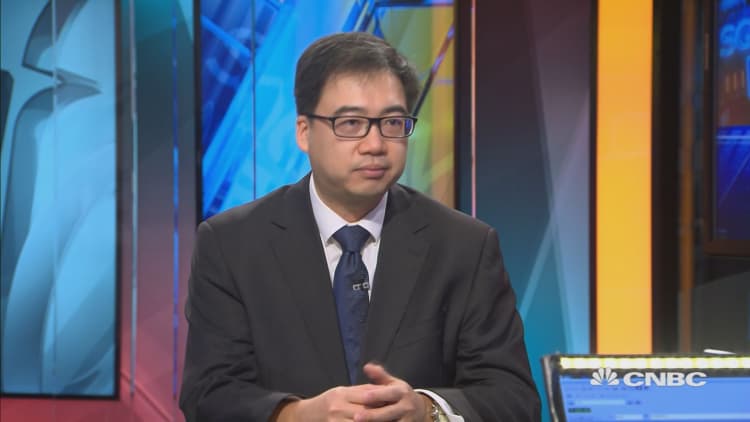The European Central Bank (ECB) has become the latest institution to hint at monetary policy action in a bid to mitigate the potential economic fallout from the coronavirus outbreak.
The statement comes after a series of comments from central bank heads around the world indicating that a coordinated global monetary response to the epidemic is a possibility.
These hopes helped boost stock markets across major economies Monday after their worst week of losses since the financial crisis, as fears of a global recession were intensified by the rapid spread of the virus outside of China.
Here, we take a look at the latest comments from the heads of some of the world's major central banks.
Europe
On Monday, ECB Vice President Luis de Guindos said the bank would "remain vigilant" and "closely monitor all incoming data." He warned of an impact on euro area exports and a disruption to global supply chains.
"In any case, the Governing Council stands ready to adjust all its instruments, as appropriate, to ensure that inflation moves towards its aim in a sustained manner," he added at a speech in London.
The ECB's main deposit rate currently sits at the historic low of -0.5%, and the central bank is embarking upon a sustained program of quantitative easing, purchasing assets at a monthly rate of 20 billion euros ($22.25 billion).

US
U.S. Federal Reserve Chairman Jerome Powell issued a statement on Friday reiterating that while the "fundamentals of the U.S. economy remain strong," the coronavirus poses "evolving risks to economic activity."
"We will use our tools and act as appropriate to support the economy," Powell added.
The market is currently pricing in a 50 basis point interest rate cut at the Federal Open Market Committee's March meeting and a total of 100 basis points in cuts by the end of 2020.
The current 1.5% to 1.75% range has been in place since the end of 2019 following three cuts throughout the year.
Japan
Bank of Japan Governor Haruhiko Kuroda on Monday noted the recent instability in markets and said there were "growing uncertainties about the outlook for economic activity due to the spread of the novel coronavirus."
"The Bank of Japan will closely monitor future developments, and will strive to provide ample liquidity and ensure stability in financial markets through appropriate market operations and asset purchases," he said in a statement.
The central bank's short-term interest rate target is currently at -0.1%.
UK
Outgoing Bank of England Governor Mark Carney told Sky News on Friday that the U.K. should prepare itself for an economic growth downgrade, warning that supply chains were "getting a little tight."
The central bank followed this up on Monday, saying it was working closely with Britain's finance ministry and regulator, along with international partners, to take "all necessary steps" to protect financial stability.
The U.K.'s main interest rate is currently at 0.75%.
China
China is the only major central bank that has cut its interest rate in direct response to the coronavirus to date.
Beijing cut its benchmark lending rates on February 20 in a bid to weather the storm, with the People's Bank of China reducing the one-year loan prime rate from 4.15% to 4.05% and its five-year rate from 4.8% to 4.75%.


